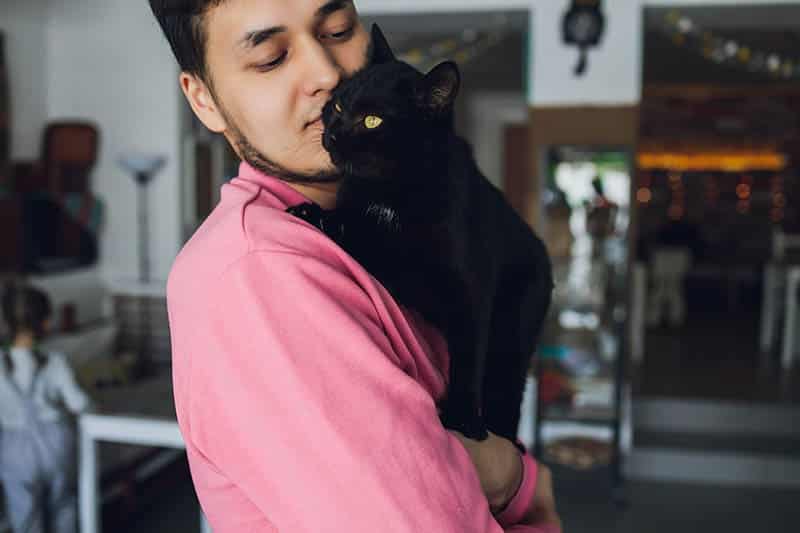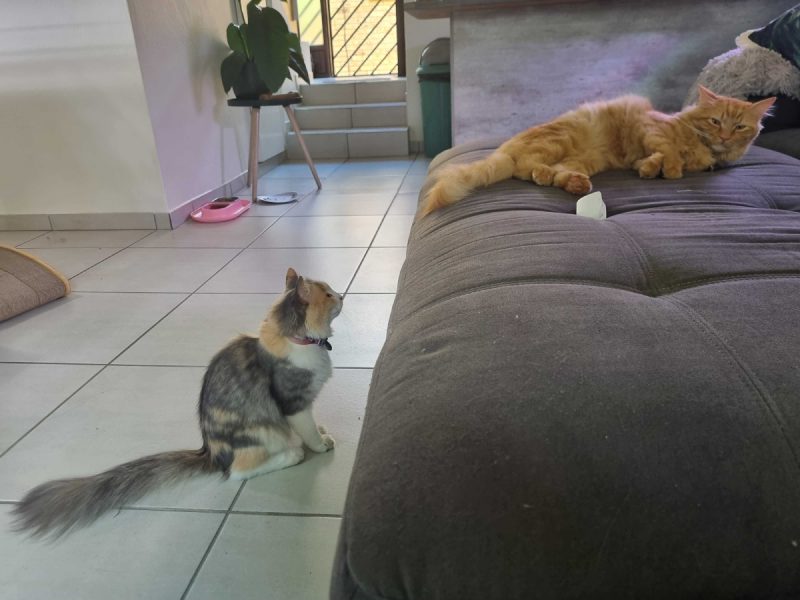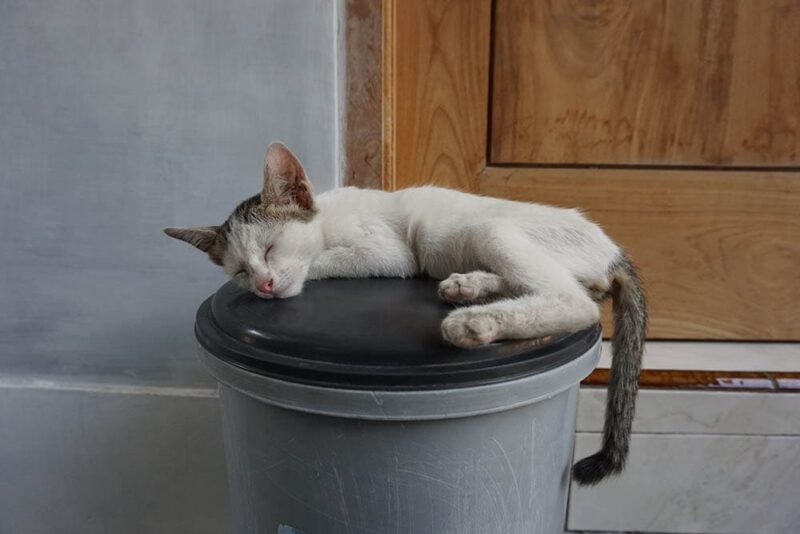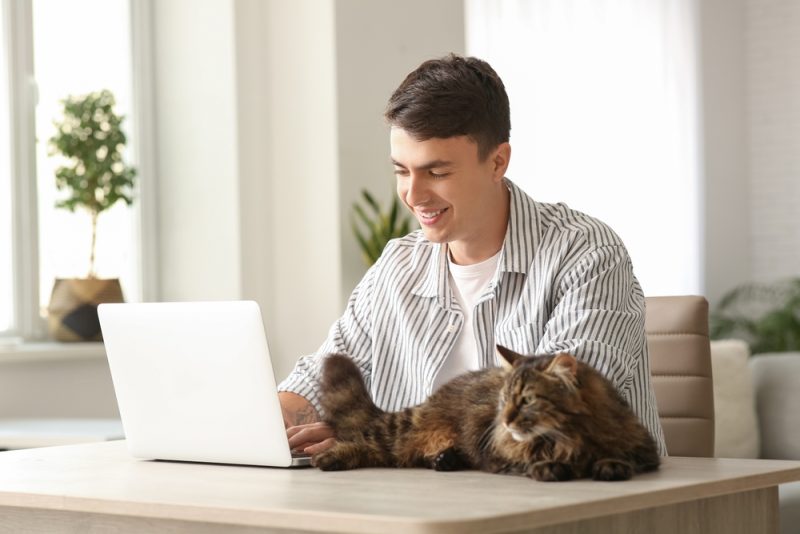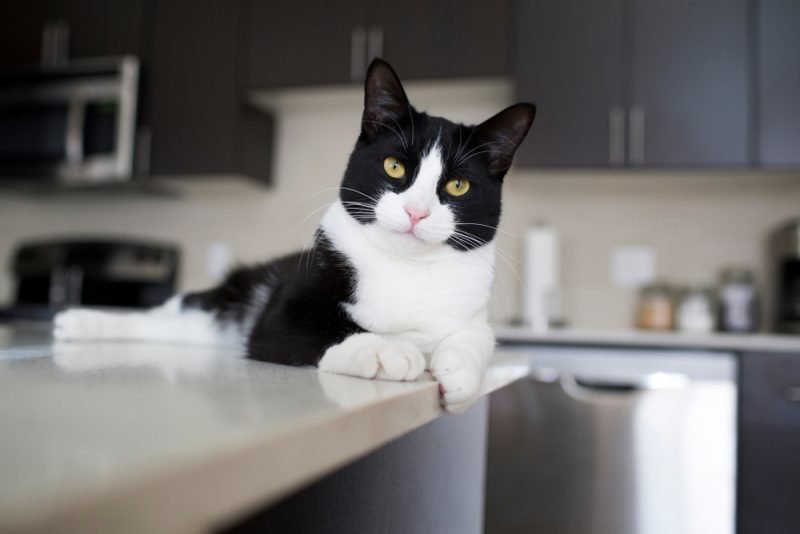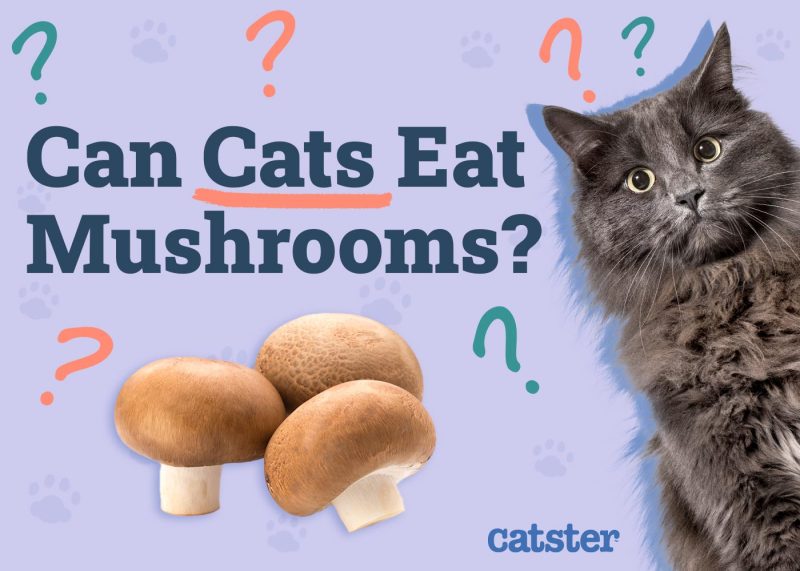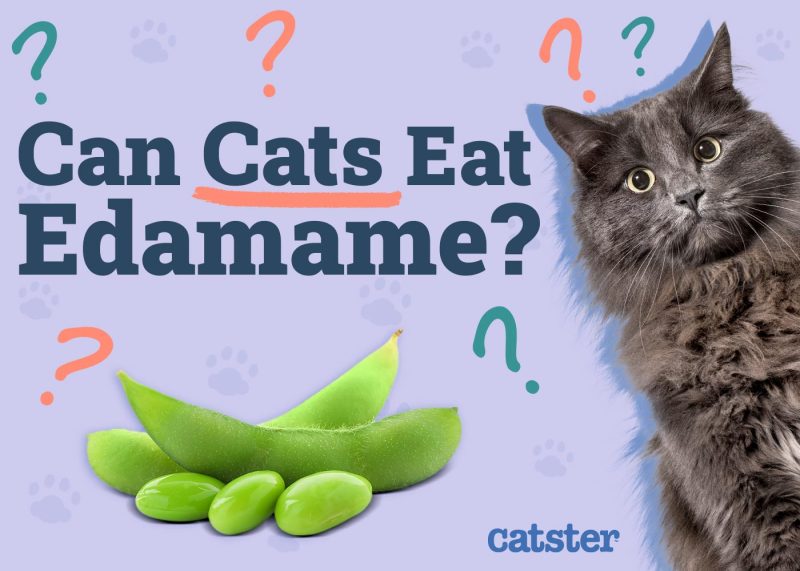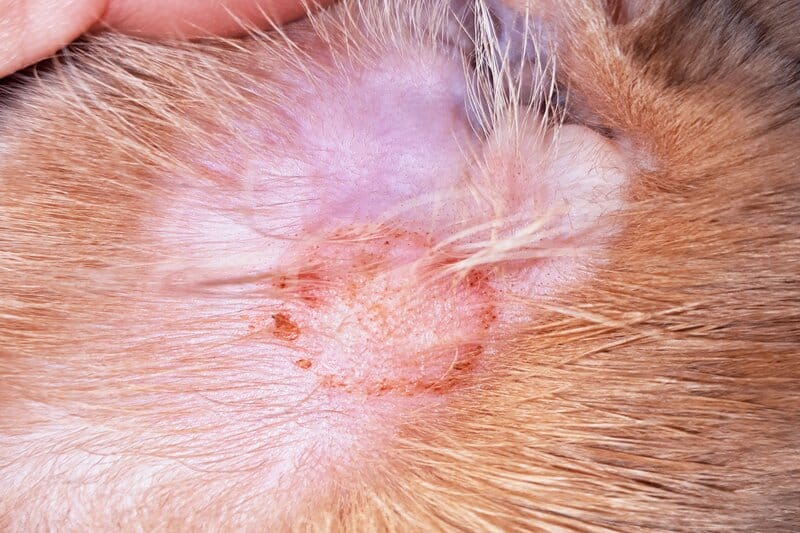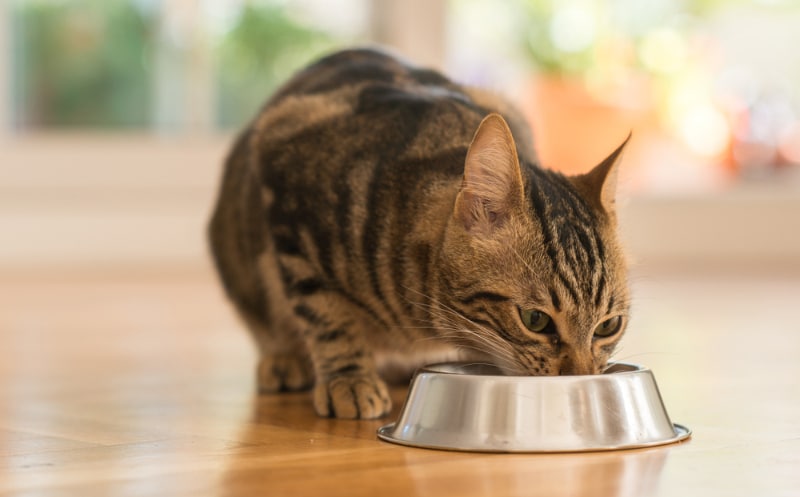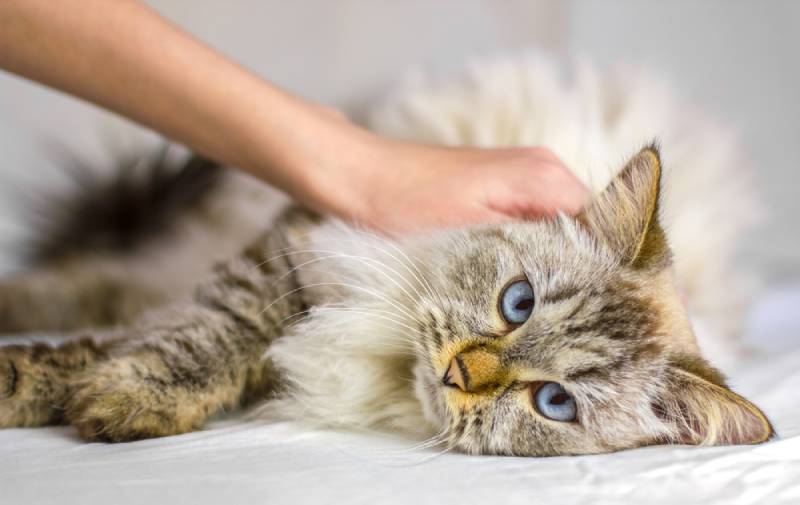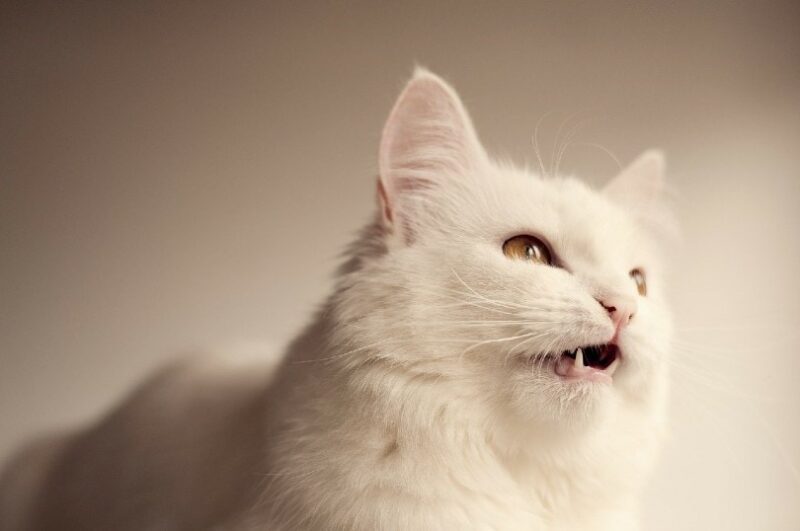In this article
Have you ever gone to a shelter to adopt a cat? If so, what factors were part of your decision for which cat to adopt? Were these personality, age, health issues—or maybe the color of the cat? Certain colors of cats have stereotypes attached to them, which some people believe affects how often they are adopted. “Black cat syndrome” is a reported phenomenon wherein people tend not to adopt black cats.
But does black cat syndrome actually exist? It turns out that the color of a feline may play a more significant role in determining which cats are adopted from shelters than you might realize. However, most of the research on black cat syndrome is anecdotal, so there’s no true clear answer on whether it exists or not. Here’s what to know about black cat syndrome and how the color of a cat may affect adoption rates.

What Is Black Cat Syndrome?
Black cat syndrome is the theory that people tend to pass on adopting black cats, making it so that these cats remain in shelters for the longest time, which means they are more likely to be euthanized. But why would people be overlooking the ubiquitous Halloween kitty? It turns out there are a few reasons, though superstition is the most likely culprit.
- Difficulty in photographing them
- Difficulty in reading facial expressions
- Superstition
Because these felines have dark fur, photographing them for adoption websites can be more challenging, as animals with dark fur don’t photograph as well as those with light fur. This means cats with light-colored fur are more likely to end up on a shelter’s website, giving them more exposure to the public than kitties with dark fur, raising their chances of adoption.
A person might also find it more challenging to read a black cat’s facial expressions, as the features of a black cat’s face may look less defined to them because of the color of their fur. Not being able to recognize a kitty’s expressions can make them seem less approachable.
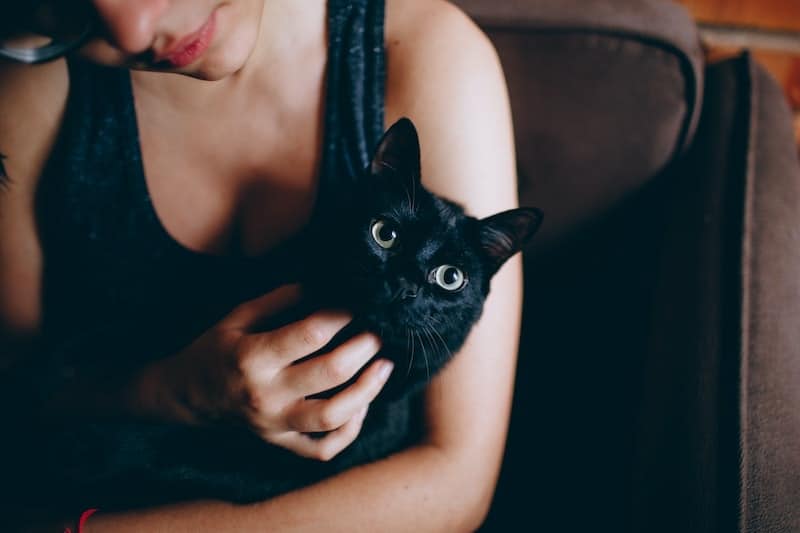
But chances are that when it comes to the adoptability of black cats, superstition plays the biggest part in keeping them from being adopted. Black cats have gotten a negative reputation over the years (through no fault of their own), especially as it pertains to folklore, superstition, and luck.
You probably heard early on in life that if a black cat crossed your path, it would bring you bad luck, so you might’ve avoided black felines from then on. There’s also how black cats feature heavily in folklore and history as witches’ familiars, giving them an association with evil. The way that these kitties are associated with Halloween may make them undesirable to those who find Halloween to be scary or evil (though the bigger problem with this one is people adopting a black cat for the holiday to feature at their Halloween party without considering the care that a cat needs for the long term).

Does Black Cat Syndrome Exist?
So, does black cat syndrome exist? There’s a possibility that it does, but the research is divided on the topic. There have been a few studies on the phenomenon, and while some determined that it (or at least bias against black felines) does exist, others found no data to back it up.
- A 2012 study by the ASPCA found that appearance was the most important consideration for kitten adopters (23%) when adopting a pet. For adult cat adopters, though, behavior was the biggest consideration (30%) rather than how a cat looked.
- A 2012 study by the University of California Berkeley found that people tended to characterize black cats as antisocial and less friendly than orange and bi-colored felines.
- A 2013 study done in Colorado found that it took black felines an average of 6 days more to be adopted than non-black cats (but they were still being adopted).
- A study from 2019 wherein people were shown photographs of cats found that those who couldn’t determine the emotions of a black cat from their face and those with superstitious beliefs were more likely to be biased against black cats.
- A study from 2020, focusing specifically on Austin Animal Shelter in Texas during the years from 2013 to 2020, found that black cats were overlooked more than other colors of cats, but over the years, black cats began to be adopted more (likely due to campaigns promoting the adoption of black animals).
If you listen to people who work at shelters, most will tell you that black cat syndrome does exist. However, it may just seem this way because animals with black and brown fur tend to end up in shelters more often than those with lighter fur. So, even if black cats are being adopted at similar rates to other animals, more will be left behind in shelters because there are so many.
So, does black cat syndrome exist? It’s honestly hard to say. There appears to be some bias when it comes to black cats, but these cats do still get adopted.

Conclusion
There’s certainly anecdotal evidence to support black cat syndrome existing, but research on the subject has been torn. There seems to be evidence of some bias regarding black cats, particularly among those who hold superstitious beliefs. More likely, though, the fact that black cats seem to be adopted less often than other cats probably comes down to there being more black cats in shelters than cats of other colors.
Since there are so many black felines, even when they are adopted out, there are still many left behind, making it seem as if they are adopted less often.
Featured Image Credit by: Vershinin89, Shutterstock
